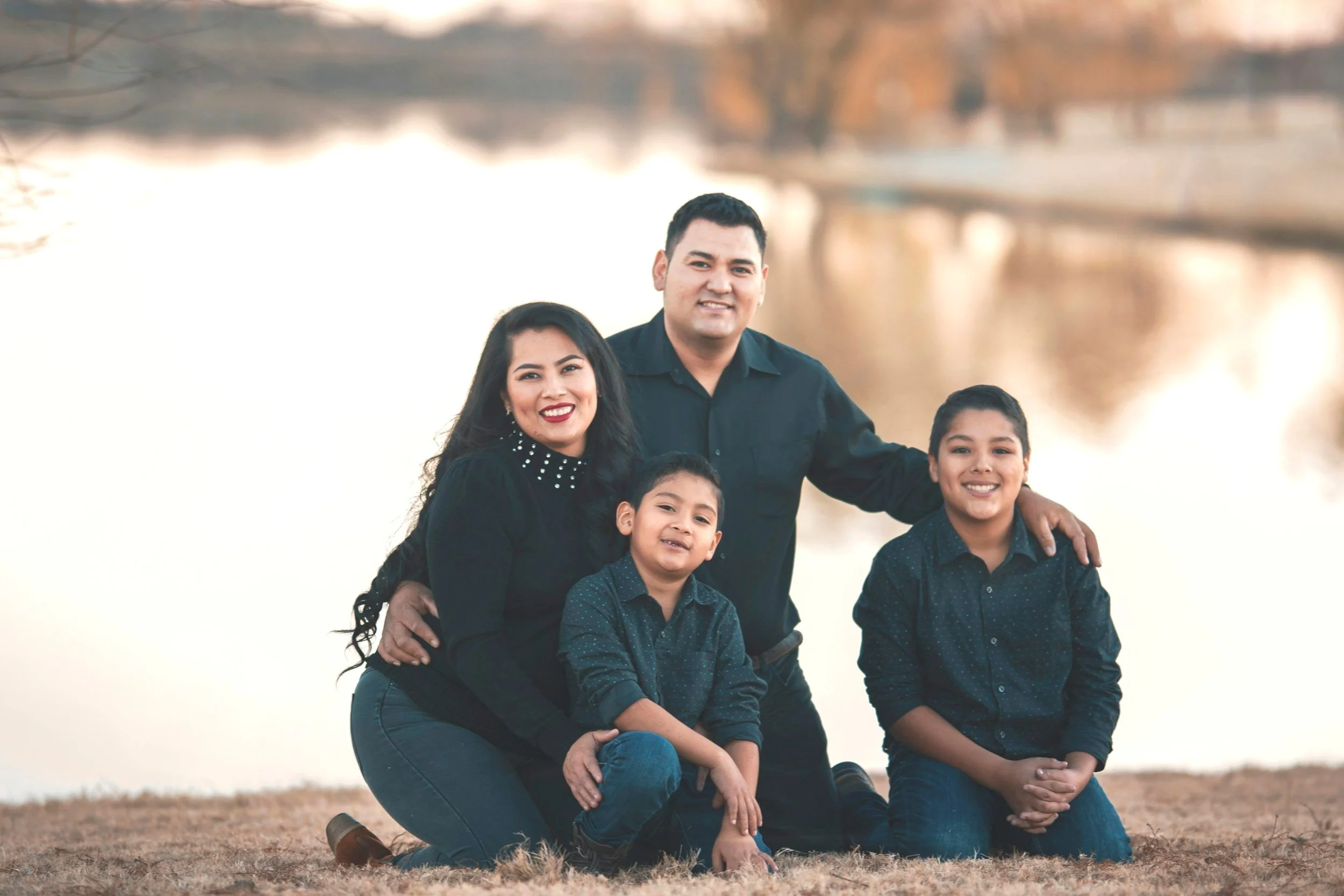
Creating Solutions Psychology
Family Counselling and Therapy in Edmonton
Family therapy provides a supportive space to improve communication, resolve conflicts, and strengthen relationships.
When your family is struggling and you need support
Family is supposed to be a place of love and support—but sometimes it feels like the opposite. Arguments can increase, communication may break down, or certain issues may feel impossible to resolve. You may feel like you’re walking on eggshells, or no one is really understanding each other anymore.
Family therapy provides a supportive space for families (or even a few family members) to work through challenges together. Whether a family is experiencing transitions, stress, or long-standing patterns of tension, therapy encourages understanding and collaboration. The goal is to create healthier ways of relating to one another, build stronger connections, and support each member of the family in feeling heard and valued.
Common issues addressed in family therapy include:
communication,
frustration and outbursts,
conflict resolution,
trauma and loss,
sibling conflict, and
family or life transitions.

Family counselling focuses on helping you and your family work on some of the following areas:
Improving Communication – Learning healthier ways to express thoughts and feelings, and to really hear one another.
Managing Conflict – Breaking unhelpful patterns of arguments and finding constructive ways to resolve disagreements.
Strengthening Relationships – Rebuilding trust, closeness, and connection between family members.
Blended/Stepfamily relationships - Certain family systems have unique needs and dynamics to consider when needing support and change.
How Family Counselling and Therapy Can Make a Difference.
Navigating Life Transitions – Supporting families through changes such as separation, divorce, remarriage, or blended family dynamics.
Parenting Support – Helping parents align approaches, set boundaries, and support their children effectively.
Supporting Children and Teens – Addressing behavioral, emotional, or school-related challenges within the family context.
Coping with Stress or Crisis – Working together to manage the impact of grief, illness, financial strain, or other major stressors..
Common techniques used in therapy
-
Confidentiality and an Emotionally Safe Space: Therapy provides a private, judgement-free environment where family members can express themselves and feel heard.
Therapeutic Relationship and Guidance: Therapists offer compassionate listening, validation, and professional guidance to help clients navigate challenges, improve connection, and find solutions right for them.
Personalized Strategies and Techniques: Therapy is tailored to each family’s needs. Evidence-based approaches are used to help clients work through difficulties and create the family dynamic they need.
-
CBT focuses on identifying and changing unhelpful thought patterns that lead to emotional distress. It is goal oriented and empowers family members to develop healthier ways of thinking and coping.
Key CBT Techniques for Families
Identifying Negative Thought Patterns: Helping clients recognize negative or distorted thoughts to replace them with more healthy ones.
Reframing Thoughts and Perspectives: By challenging negative beliefs, CBT encourages more balanced and realistic ways of thinking, improving overall emotional well-being.
Coping Skills: Specific skills are developed to support problem solving, relaxation, and healthy responses to each other.
Building Emotional Resilience: By practicing new coping and perspectives, individuals gain long-term skills to manage future challenges more effectively
-
Psychoeducation provides families with information and tools about mental health, parenting, or relationships so families can better understand and support one another.
Key Psychoeducation Techniques for Families
Teaching about developmental stages: understanding key goals and struggles of your child’s developmental stage can help enhance understanding as well as create realistic expectations and goals.
Explaining stress/trauma responses: Trauma and stress can take on a life of their own, often masking as other behaviours like laziness, avoidance, or anger. Knowing the unique way trauma and stress show up prepares family members to better support each other.
Skill-building handouts/tools: concrete strategies and practice helps families to change interactions from what doesn’t work to what does.
-
These family therapy approaches look at family roles, boundaries, and patterns to create healthier ways of interacting and how each person’s behavior affects the whole family system to help shift unhelpful dynamics.
Key Family Therapy Techniques
Reshape Family Roles and Boundaries
– Learning healthier limits and ways of relating so everyone feels respected and supported.Break Unhelpful Patterns
– Noticing cycles of conflict or disconnection and finding new, more positive ways to interact.Strengthen Communication Skills
– Practicing active listening, using “I” statements, and learning tools to handle disagreements calmly.
-
Solution Focused Therapy is a short-term, goal oriented approach that focused on practical solutions to challenges rather than past problems. It helps families identify strengths and practical solutions rather than only focusing on problems.
Key Solution Focused Therapy Techniques for Families
Positive Mindset: SFT shifts the focus from problems to solutions, helping people see possibilities for change rather than staying stuck in difficulties.
Focus on Strengths and Resources: Family members are guided to recognize their existing skills, past successes, and naturally occurring supports.
Sets Clear and Achievable Goals: SFT focuses on simple and effective techniques that can be applied immediately to create meaningful progress.
Who Provides This Service?
-

Amy Cardinal
Registered Psychologist
-

Nadia Ivanchikov
Certified Canadian Counsellor
-

Kenneth Guye
Registered Clinical Social Worker
-

Brandi Smith
Registered Psychologist
How Family Therapy At Creating Solutions Works
-
Creating Solutions requires the informed consent of all guardians to proceed with therapy services involving a minor, unless indicated otherwise by legal documents. If you have documents related to decision making for a child who will be involved in therapy please provide those at the time of intake.
-
Through the first sessions a Creating Solutions’ therapist gets to know you and will develop unique strategies and interventions aimed at supporting your family in achieving your therapy goals, reducing conflict and building trust and safety. Sometimes all family members are not ready for therapy at the same time, your therapist will tailor sessions to best meet your family where they are at.
-
Creating Solutions requires all clients to go through informed consent during their first session so they know their rights and the expectations during therapy. This includes a conversation with their therapist and the review of consent forms. Anytime there is a change or question, a Creating Solutions’ therapist will revisit this conversation so the process of therapy is clear and comfortable.
Setting Up Therapy for a Family
If you are ready to get your family started contact us to complete the intake and schedule an initial session.
If you are not sure what you may need to get started let us know you want to book a phone consultation with one of our therapists to ask questions and get clear direction.




